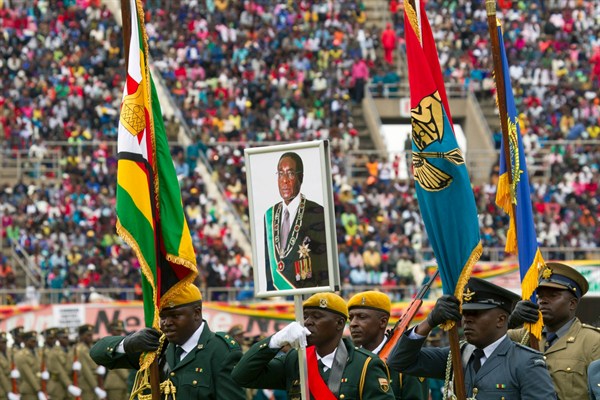The political opposition in Zimbabwe to President Robert Mugabe is about to test the old adage that the enemy of my enemy is my friend. On April 19, two opposition leaders—former Prime Minister Morgan Tsvangirai and former Vice President Joice Mujuru—announced that they would seek to create a coalition in an effort to deny Mugabe another five-year term in 2018. But will it succeed where successive efforts have failed?
In theory, defeating Mugabe should not be terribly difficult. He has led Zimbabwe as president or prime minister since 1980. Under his watch, the country has gone from being one of the leading lights of Southern Africa and a major agricultural exporter to an international pariah and economic disaster. The United States and European Union both have sanctions against Zimbabwe for its failure to hold free elections, lack of press freedom and human rights violations. What’s more, Mugabe himself will be 94 when the elections occur. The combination of age and mismanagement should make Mugabe easy to defeat.
But it would be a bad idea to count Mugabe and his party, ZANU-PF, out. Mugabe is a political Rasputin, seemingly able to survive political and economic situations that would topple most leaders of other governments. His survival comes from a combination of his own efforts to fend off opponents and persistent divisions among Zimbabwe’s political opposition.

